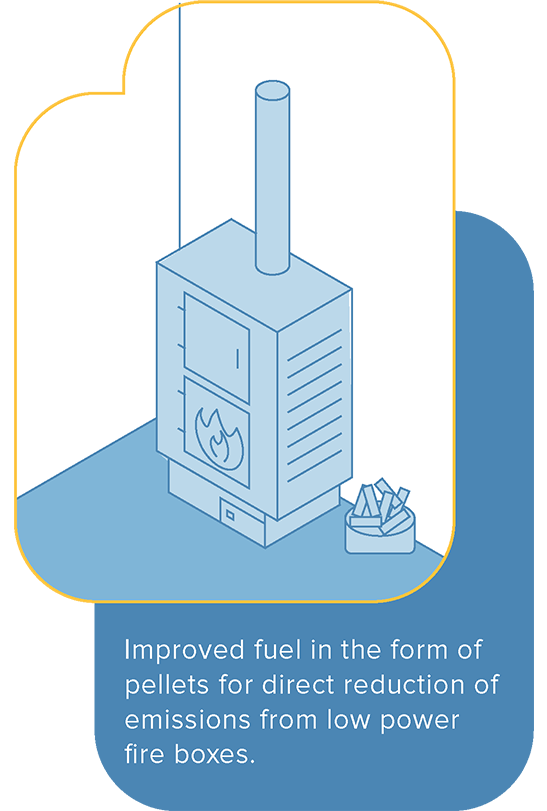English
/
Српски
English
/
Српски
☰
Improving air quality by using advanced fuel
Short description
Improved fuel in the form of pellets for direct reduction of emissions from low power fire boxes.
Author
University of Belgrade, Faculty of Mechanical Engineering
Total budget
US$ 36,000.00
Requested budget
US$ 24,000.00
Time Frame
12 months
Problem
The household sector is recognized as a significant source of pollution, especially due to the use of low-power heating appliances used for heating and/or food preparation, where various forms of biomass (firewood, briquettes, pellets) are used as fuel. Of all the harmful substances that affect air pollution, solid particles (PM2.5 and PM10) have been identified as the biggest problem.
Solution
One way to reduce particulate emissions is to add additives to biomass as a primary (direct) measure to reduce emissions. In this manner, the so-called improvement of fuel quality is done by using additives, which is fully in line with the RED II Directive of the European Union. The additive enables the binding of gaseous alkaline compounds through appropriate reactions or absorption, forming less harmful and less volatile compounds, which in turn reduces the amount of particles emitted into the air.
Additional info
The project will test the combustion process of mixtures of wood pellets and five different additives whose shares in the mixtures are 2 wt. %, 4 wt. % and 6 wt. %, in order to select an additive that would significantly reduce emissions. The proposed additives kaolin, limestone, calcium hydrogen phosphate and ammonium dihydrogen phosphate are available on the domestic market and have an economically acceptable price. In addition to the above, sewage sludge would be used as an additive, which additionally affects the protection of the environment, since the disposal of sewage sludge can be an additional environmental problem.

